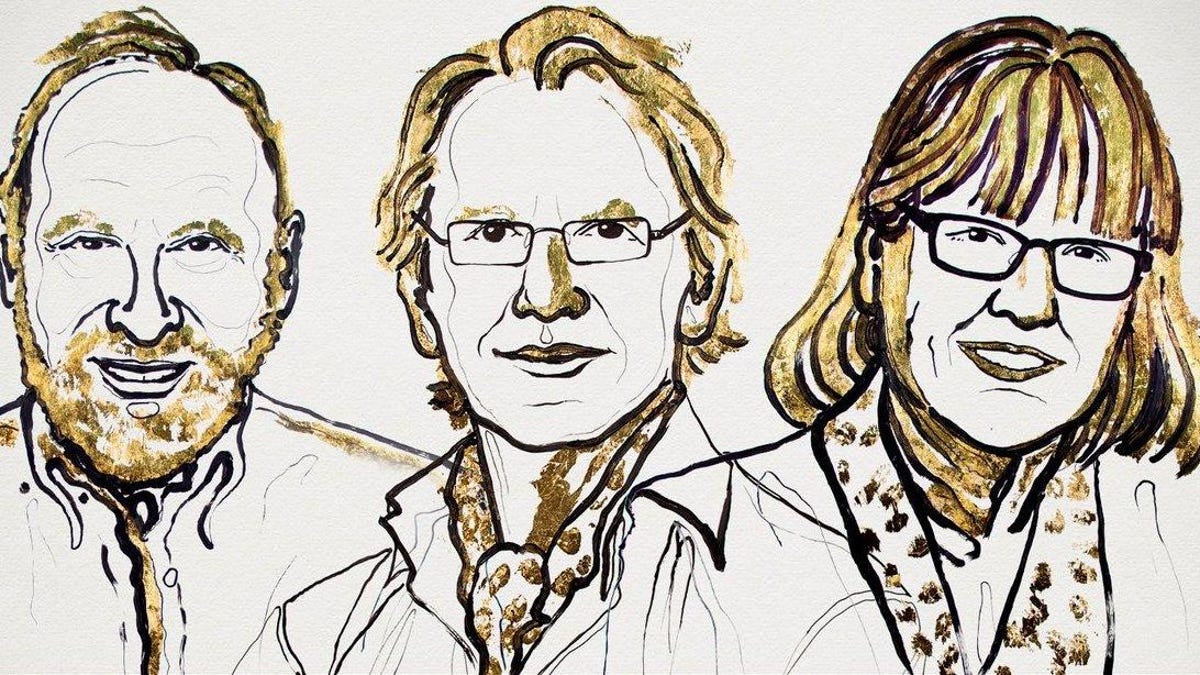Nobel Prize in Physics goes to trio of laser physics inventors
Their work allows for the manipulation and cutting of tiny objects, opening new avenues of research.

Arthur Ashkin, Gerard Mourou and Donna Strickland will get the Nobel Prize in Physics for 2018.
The Nobel Prize in Physics for 2018 will be jointly awarded to three people for their work in manipulating and cutting microscopic objects through laser physics.
Half will go to Arthur Ashkin, of Bell Laboratories in Holmdel, New Jersey, for "optical tweezers and their application to biological systems."
The other half will jointly go to Gerard Mourou, from Ecole Polytechnique in Palaiseau, France, and the University of Michigan in Ann Arbor, and to Donna Strickland, of the University of Waterloo, in Ontario, "for their method of generating high-intensity, ultra-short optical pulses."
The inventions revolutionized the field, the Royal Swedish Academy of Sciences noted in its announcement.
"Extremely small objects and incredibly fast processes now appear in a new light," the academy wrote. "Advanced precision instruments are opening up unexplored areas of research and a multitude of industrial and medical applications."
Science fiction has become a reality. Optical tweezers make it possible to observe, turn, cut, push and pull with light. In many laboratories, laser tweezers are used to study biological processes, such as proteins, molecular motors, DNA or the inner life of cells.#NobelPrize pic.twitter.com/tWK55J4VcP
— The Nobel Prize (@NobelPrize) October 2, 2018
The optical tweezers created by Ashkin can manipulate living cells like viruses and bacteria without damaging them.
Mourou and Strickland's work resulted in "the shortest and most intense laser pulses created by humankind" -- allowing for incredibly precise cutting or drilling through living matter. Their technique is called chirped pulse amplification (CPA).
Gérard Mourou and Donna Strickland – this year’s #NobelPrize recipients – paved the way towards the shortest and most intense laser pulses created by humankind. The technique they developed opened up new areas of research and led to broad industrial and medical applications. pic.twitter.com/KQYcbmW0tl
— The Nobel Prize (@NobelPrize) October 2, 2018
Strickland is the third woman to get the Nobel Prize in Physics, following Marie Curie in 1903 and Maria Goeppert-Mayer in 1963.
"We need to celebrate women physicists because they're out there ... I'm honored to be one of those women," Strickland said.
The 2018 Nobel Prize in Medicine was awarded to James P. Allison and Tasuku Honjo on Monday, for their breakthrough in cancer research.
The Nobel Prize in Chemistry will be awarded on Wednesday, and the winner of the Nobel Peace Prize will be announced on Friday. This year's Nobel Prize in Literature has been postponed.
Appliance Science: The bright physics of light and color.
Stephen Hawking's farewell: Last paper published in physics journal.

